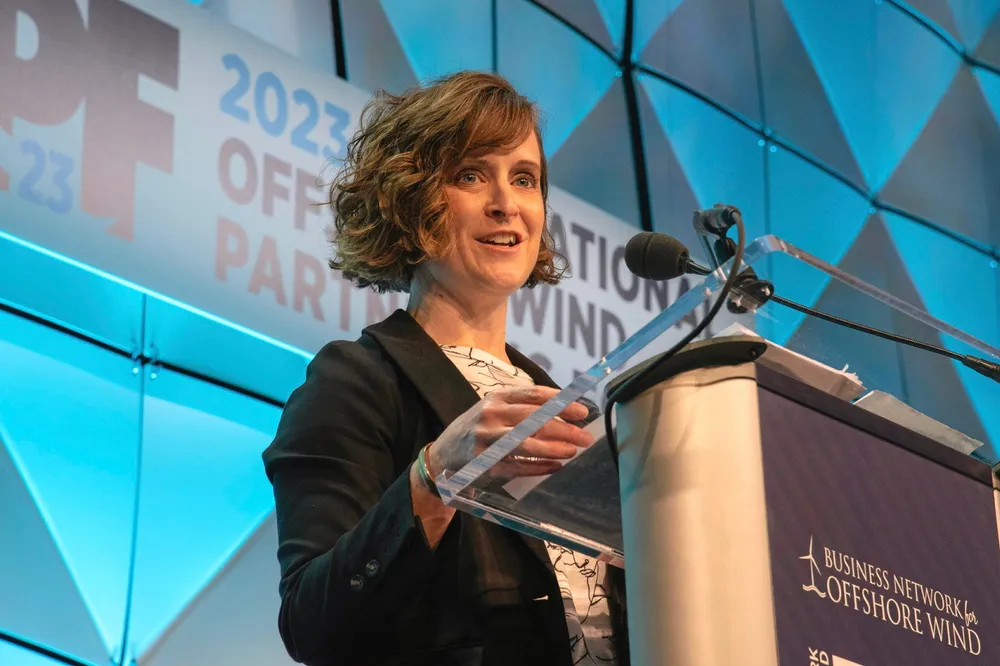US postpones Oregon floating wind lease auction 'due to insufficient bidder interest'
Governor Tina Kotek requested that the regulator 'halt all current leasing activities' amid stakeholder concerns over impacts on the coastal environment and economy

The US Bureau of Ocean Energy Management (BOEM) has postponed the upcoming federal wind lease auction off Oregon “due to insufficient bidder interest at this time,” the agency said in a release.
The auction for two leases off Coos Bay and Banning covering some 195,012 acres (789 sq. km) and holding around 3.2GW of capacity had been scheduled for 15 October but has now been suspended until a “future opportunity” arises.
Other bidders include BlueFloat Energy, which has spearheaded floating wind development in Europe, South America and Asia but has no US pipeline.
The remaining two bidders, EDPR-Engie joint venture Ocean Winds and Iberdrola-owned Avangrid, were both successful in the recent Massachusetts-Rhode Island joint procurement but have fared differently in recent leasing rounds held by President Joe Biden's administration.
Ocean Winds has successfully bid in the record-setting New York Bight and off California in 2022, while Avangrid has failed to win acreage despite multiple attempts.
Governor's concerns
Many stakeholders as well as Oregon governor Tina Kotek had expressed concerns that BOEM's leasing plans were rushed and urged the regulator to wait until the state had completed its offshore wind roadmap next year.
In a letter sent to BOEM director Elizabeth Klein, Kotek said she has heard concerns from “renewable energy, labour, fishing, and conservation communities on the risks that a failed competitive lease process would pose to Oregon’s developing supply chain industry and to its environmentally sensitive offshore habitats.”
In this letter, the governor informed BOEM that the state was withdrawing from the Oregon Intergovernmental Renewable Energy Task Force “in order to ensure that Oregon’s interests are fully protected.
“Given this, I request that BOEM halt all current leasing activities off the coast of Oregon and terminate the current auction,” governor Kotek wrote.
Tribal and fisheries opposition
Oregon's Tribes and fisheries organisations have been adamantly opposed to floating wind development.
The Confederated Tribes of the Coos, Lower Umpqua and Siuslaw Indians (CTCLUSI) filed suit recently in US District Court for the District of Oregon claiming that the environmental assessment (EA) of the wind energy areas (WEAs) was insufficient and violated federal law.
“Cancelling the lease sale makes sense. The Tribe, elected officials, commercial fishing interests, and others have consistently urged that BOEM delay moving forward with wind energy development until a better understanding is made of the impacts to fish, wildlife, the marine environment, and cultural resources,” said Tribal council chair Brad Kneaper.
“With this action, the Tribe will reconsider the litigation pending against BOEM,” he added.
Heather Mann, executive director of Midwater Trawlers Cooperative, said: “This is not only a huge relief to the fishing industry, but to all Oregonians who want to understand what the impacts from floating offshore wind energy development could be to the environment, fisheries, and coastal economies.”
Technical and market hurdles
Development would also face technical hurdles, including water depths of more than 1,000 metres that exceed the range of current technologies, while market demand remains unclear.
With little more than 4 million residents across a sprawling area, the Oregon lacks industrial infrastructure or load centres to support a large-scale floating wind sector.
“The West Coast is an emerging market that will require new technologies,” said Sam Salustro, vice president of strategic communication at industry group Oceantic Network.
“Oceantic is confident that Oregon will soon join other states in the development of offshore wind projects as conversations continue and supply chain opportunities materialise,” he added.